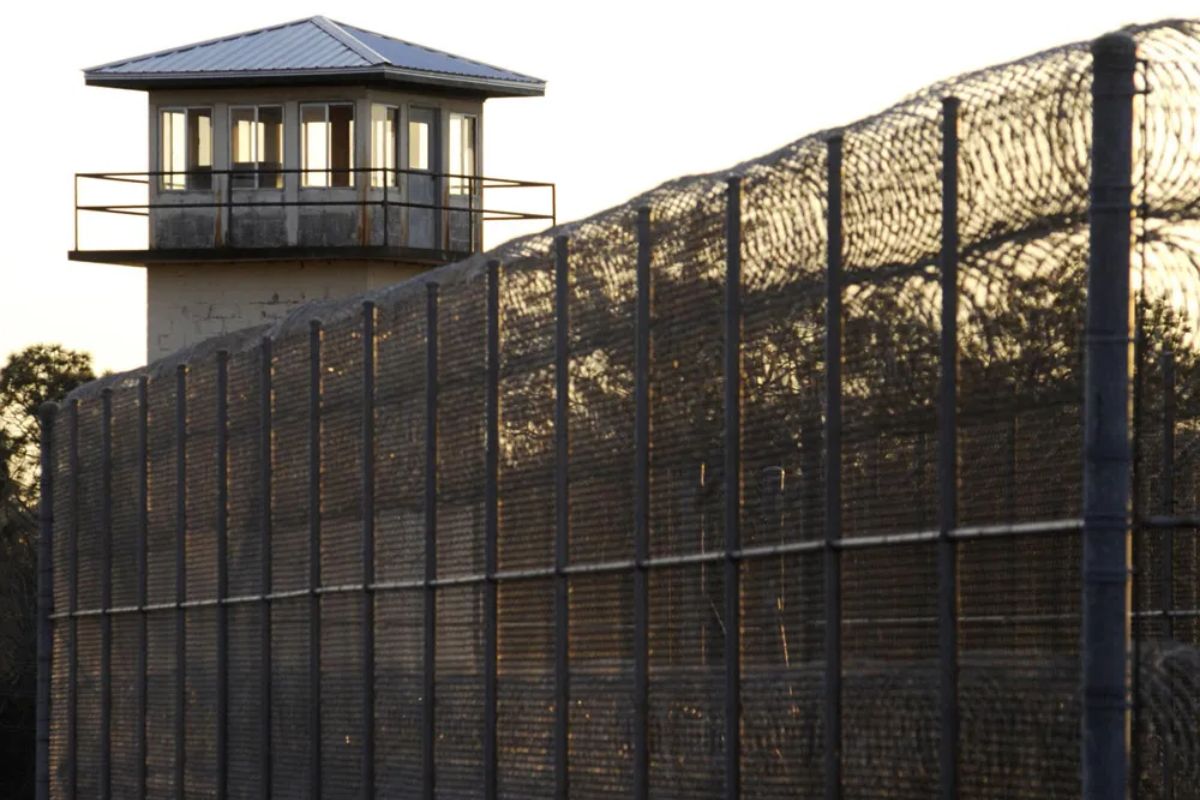Prisoners Bodies Returned to Families: A federal lawsuit has been filed against the Alabama Department of Corrections, alleging that deceased prisoners’ bodies were returned to their families without vital organs. This shocking revelation has prompted another inmate’s family to join the lawsuit, bringing further attention to the issue.
One specific incident, involving the case of Brandon Clay Dotson, has highlighted the outrageous and inexcusable mishandling of bodies.
This lawsuit raises broader questions about the state’s prison system, demanding a thorough investigation into its practices.
Key Takeaways
- Lawsuit filed against Alabama Department of Corrections alleging absence of vital organs in deceased inmates’ bodies
- Brandon Clay Dotson’s case highlights the need for transparency and accountability in the prison system
- Handling of deceased inmates’ bodies condemned as outrageous and inexcusable, violating the law
- Allegations of missing organs raise broader concerns about Alabama’s prison system and demand for comprehensive investigation
Federal Lawsuit Against Alabama Department of Corrections
The Alabama Department of Corrections is currently facing a federal lawsuit alleging the absence of vital organs in the bodies of deceased inmates returned to their families.
The legal action, initiated by the family of Brandon Clay Dotson, sheds light on the disturbing state of Dotson’s body upon his death in an Alabama state prison.
The lawsuit claims that when Dotson’s body was returned to his family for burial, it was discovered that his brain, heart, and other vital organs were missing.
This shocking revelation has prompted an investigation into the practices and procedures of the Alabama Department of Corrections regarding the handling and treatment of deceased inmates.
The lawsuit seeks answers and justice for the families who have endured the pain and anguish of losing a loved one and then discovering the unthinkable – that their bodies were returned incomplete.
Another Inmate’s Family Joins the Lawsuit
Another family has joined the federal lawsuit against the Alabama Department of Corrections, alleging the absence of vital organs in the bodies of deceased inmates returned to their families. The latest addition to the legal case is the daughter of Charles Edward Singleton, who passed away while in the state’s prison system.
Singleton’s body arrived devoid of all internal organs in 2021, adding to the mounting evidence suggesting a distressing pattern within the prison system. Attorney Lauren Faraino, representing the plaintiffs, emphasizes the gravity of these allegations, indicating a potential systemic issue that needs urgent investigation.
The inclusion of another family in the lawsuit strengthens the claims against the Alabama Department of Corrections and highlights the extent of the problem. As the case continues to unfold, it is imperative to scrutinize the practices and protocols governing the treatment of deceased inmates within the prison system.

ALSO READ: US Judge Allows First Nitrogen Gas Execution in Alabama Approval
The Specific Incident Brandon Clay Dotson’s Case
Brandon Clay Dotson’s case reveals disturbing allegations of missing organs in deceased prisoners’ bodies returned to their families. Dotson, a 43-year-old inmate at Ventress Correctional Facility, was found dead on November 16.
In an attempt to uncover the truth behind his death, Dotson’s family commissioned a second autopsy, which shockingly revealed the absence of his heart. This revelation has led to a lawsuit that seeks answers regarding the removal of Dotson’s heart and demands its return to his grieving family.
The disappearance of an organ raises serious questions about the treatment of deceased prisoners and the potential abuse of their bodies. The investigation into Dotson’s case serves as a poignant reminder of the need for transparency and accountability within the prison system, particularly when it comes to the handling of deceased inmates’ bodies.
Legal Condemnation: Outrageous and Inexcusable Handling of Bodies
Allegedly involving the reprehensible violation of human dignity, the handling of deceased inmates’ bodies by the Alabama Department of Corrections has faced legal condemnation for being outrageous and inexcusable. The accusations outlined in the lawsuit liken the misconduct to ‘grave robbery and mutilation,’ painting a disturbing picture of the treatment of these individuals even after death.
The gravity of the situation cannot be understated, with the following key points highlighting the extent of the alleged mishandling:
- Lack of respect: The defendants are accused of showing a complete lack of respect for the deceased inmates, treating their bodies with disregard and callousness.
- Unlawful actions: The lawsuit claims that the Alabama Department of Corrections violated the law by removing organs from the deceased without consent or proper authorization.
- Emotional distress: Families of the deceased inmates have suffered immense emotional distress upon discovering the alleged mishandling of their loved ones’ bodies, compounding their grief and pain.
- Systemic issues: The legal condemnation of the Alabama Department of Corrections’ handling of deceased inmates’ bodies suggests a larger issue within the prison system, raising concerns about the overall treatment of inmates and the respect for human rights.
Broader Implications: Questions Raised About Alabama’s Prison System
Numerous concerns have been raised about Alabama’s prison system following allegations of missing organs in deceased prisoners’ bodies, prompting calls for a thorough examination of the overall treatment of inmates and adherence to human rights standards.
The lawsuit accusing the Alabama Department of Corrections of mishandling the remains of deceased inmates has shed light on a broader issue within the state’s prison system. Families argue that the missing organs are not isolated incidents but rather indicative of a troubling pattern of neglect and violation of basic human rights.
This lawsuit has ignited a demand for transparency and accountability, as it brings to the forefront questions about the overall conditions and treatment of inmates in Alabama’s prisons. It is imperative that a comprehensive investigation be conducted to ensure that the rights and dignity of prisoners are protected and that ethical standards are upheld.
Conclusion Of Prisoners Bodies Returned to Families
The lawsuit against the Alabama Department of Corrections highlights the disturbing allegations of missing organs in deceased prisoners’ bodies being returned to their families.
The addition of another inmate’s family to the lawsuit further emphasizes the severity of the issue.
The specific case of Brandon Clay Dotson exemplifies the outrageous and inexcusable mishandling of bodies by the authorities.
This lawsuit raises broader questions about the prison system in Alabama and demands a thorough investigation into its practices and procedures.

